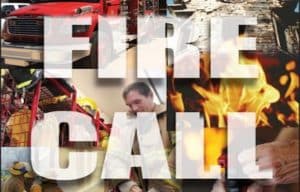The impact of high gas prices
A gallon of gasoline has become increasingly precious for consumers as prices have skyrocketed over the past few months.
The average regular gas price in Illinois, according to AAA, is $5.295 per gallon. This average price a year ago was $3.363 per gallon.
The possible reasons for the price increases are varied, with some pointing to the conflict between Russia and Ukraine, others looking at supply issues and still others pointing fingers at shifts toward renewable energy disincentivizing companies to expand fuel production.
Whatever the cause, consumers have felt the impact, and many have taken steps to avoid losing too much at the pump.
Waterloo resident Gina Green said she’s been avoiding going out unless necessary, and even then she tries to carpool and get gas relatively cheaper in neighboring Red Bud.
Green also mentioned she’s been especially aware of the speed limit lately.
“I drive exactly what the speed limit says,” Green said. “Yes, everybody passes me up. Yes, everybody’s probably cussing, but if I can save a little bit of gas money doing that then that’s what I do.”
Fellow Waterloo resident Vickie Southworth said her family’s been striving to use more fuel-efficient vehicles. They’ve also changed their fueling habits.
“We have been filling up at Costco in South (St. Louis) County or using the Upside App at the Circle K on Telegraph Road,” Southworth said. “Prices in Illinois are too high.”
Republic-Times contributor and Waterloo resident Alan Dooley said he’s been striving to go across the river to fill his 40-gallon truck about every other week.
“What I do, basically, is I’ve decided that I’m not gonna pay Pritzker’s taxes when I don’t have to,” Dooley said. “So I buy most of my gasoline at Costco in South County, and what I do is I try to time it so that if I’m running up to Columbia or something, I can just go across the river and get gasoline.”
Effective July 1, Illinois suspended its scheduled inflationary increase in the motor fuel tax through Dec. 31, which has been estimated at 2.2 cents per gallon. Instead, the motor fuel tax will increase twice at the rate of inflation next calendar year.
In contrast, Missouri’s motor fuel tax rate bumped up by 2.5 cents per gallon on July 1.
While drivers are grappling with the increase in fuel prices, regardless of if they change day-to-day driving habits or not, data from AAA indicates people are still intent on doing their summer traveling even with this heightened cost.
AAA Public Affairs Specialist Nick Chabarria said a substantial increase in travel for the summer has been anticipated, citing AAA travel forecasts for both Independence Day and Memorial Day travel periods.
“At least right now we’re not necessarily seeing the higher gas prices impacting people’s decision to take vacation,” Chabarria said. “That’s not to say that that won’t come later in the summer, but we also know that folks are making up for lost time over the last couple years, particularly for their summer vacation.”
Local gas stations have also been experiencing the price increase from their side – though the stations we were able speak with in Waterloo, Columbia and across the river said they hadn’t experienced any major changes in sales.
In regard to local government, Monroe County has had mixed experiences when it comes to prices.
Monroe County Treasurer Kevin Koenigstein discussed the increase in sales taxes from drivers.
“The high gas prices have increased the amount of sales tax that residents are paying to the county,” Koenigstein said. “Yes, we have higher fuel costs internally, but they are being offset by the higher revenue from sales tax.”
Monroe County Engineer Aaron Metzger, however, has pointed to rising oil prices as an issue as it has a major impact on the cost of roadways themselves. Much of the material used in road construction is oil-based.
Metzger had two items on the agenda of Tuesday’s meeting of the Monroe County Board which were necessary due to the rising price of oil.
The first was a resolution passed to re-appropriate funds for a pedestrian crossing project at the intersection of Route 3 and Country Club Lane in Waterloo. Bids for the project, which is done in partnership with the City of Waterloo, came in about $30,000 over estimates due to the cost of materials, requiring an additional $25,000 of funding from the county to complete the project.
The second item was an update from Metzger about upcoming resurfacing and shoulder work on Maeystown Road. He reported during a June meeting that bids for the project were higher than expected due to a significant increase in asphalt costs — with “pure” asphalt nearly double last year’s price.
Metzger said the bids for the Maeystown Road project had come in 20 percent higher than originally anticipated. However, since the project is part of a highway safety grant program, Metzger said he requested more federal funding, which he received in the amount of nearly $223,000.






